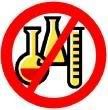In the United States alone, someone is poisoned every few seconds. 40% of these cases involve children under the age of 3. 50% of these cases involve children under the age of 6. For this reason, it is important to lock up household chemicals in a high cabinet that is out of the reach of children. In 75% of these cases, the poison was a common household product (ie prescription drugs, non-prescription pain killers, vitamins, cosmetics, personal care and cleaning products, house plants, tobacco products and alcohol).
Here is a simple check list to use within your home.
Bathroom: medicines, toilet cleaners, antibacterial cleaners, air fresheners, drain cleaners, mold and mildew remover, and some cosmetics.
Kitchen: glass cleaner, antibacterial cleaner, dishwashing detergent, all-purpose cleaner, insect sprays, oven cleaner, and ant or roach baits.
Living Room: flea collars, rug or carpet cleaners, furniture polish, cigarette or cigar butts in ash trays, and alcoholic beverages.
Bedroom: total release insect foggers, air fresheners, and moth balls.
Laundry Room: all-purpose cleaner, insect sprays, chlorine bleach, woodstains and finishes, and laundry detergents.
Garage: motor oil, windshield washer fluid, oil-based and latex paints, auto batteries, antifreeze, spot-on pesticides to control fleas and ticks on pets.
Back Yard: weed killers, pool chemicals including algicides and chlorine, baits for rodent control, insect repellents, and some new bug zappers.
Now that you've taken not of what these products are, it's time to do something about them.
Here is what you can do:
First of all, it is very important that you keep all household chemical products and medicines out of the reach and out of the sight of children. These things really should be locked up whenever they're not in use. Remember that medicines and household chemicals on kitchen counters or bathroom surfaces are very accessible to young hands. It is also your responsibility to make sure that any medicines that visitors may bring into your home are also kept safely away from children.
Whenever you use toxic products, you should never let them out of your sight, even if you must take them along with you whenever you're answering the telephone or the doorbell. Studies show that most poisonings actually occur whenever the product is being used.
[How about using all NON-Toxic cleaning products in your home? Contact this blogger to find out how to switch stores to safer for your home products.]
You need to store all medicines away from household products, and all household chemical products away from food.
Keep products in their original containers with the original label intact. Make sure that you read the label before you use them.
Avoid taking medication in front of children, since young children tend to immitate adults. You should also make sure that you NEVER call medicine "candy."
The poison control number (1-800-222-1222) should be posted on or near every home telephone.
You need to know the names of the plants in your house and yard. If and when you fnd a poisonous plant, it should either be placed out of the reach of children or, better yet, removed.
Check your home for lead-based paints. You can receive detailed information about this by contacting the National Lead Information Center at 1-800-424-LEAD
Article Source: http://EzineArticles.com/?expert=Brenda_Hoffman

Wednesday, August 22, 2007
Subscribe to:
Post Comments (Atom)

No comments:
Post a Comment